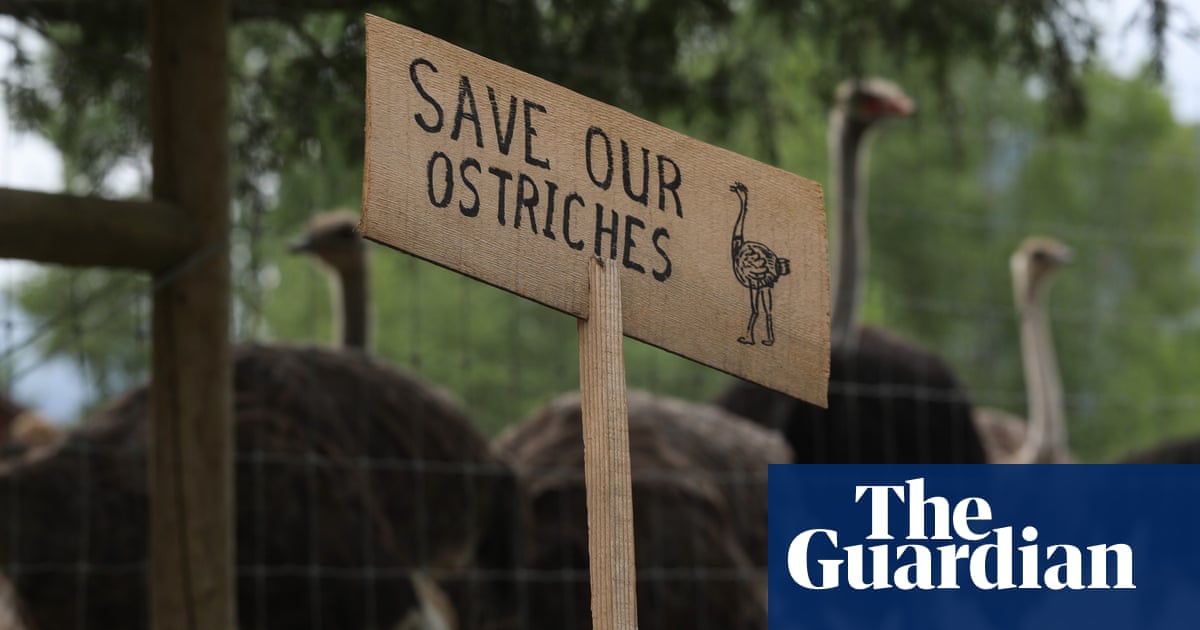Senior officials in the Trump administration have intervened in attempt to save more than 300 ostriches on a farm in British Columbia which the Canadian government had ordered to be killed over fears the flock is infected withavian flu.
Robert F Kennedy Jr, the US health secretary, and Mehmet Oz, a physician and former TV hostappointed by Trump as the director of the Centers for Medicare and Medicaid, have offered to move the birds to Oz’s ranch in Florida – despite the kill order imposed by Canadian health authorities.
Universal Ostrich, a farm in Edgewood, BC, was ordered to kill all its birds after authorities received an anonymous tip in December 2024 that some were dying. Samples collected from two birds found they tested positive for H5N1, a strain of bird flu.
The farm’s owners sued over the order, but the Canadian federal government argued they were following a “stamping out” policy in order to keep avian flu at bay, in line withadvice from the World Health Organization.
According tocourt documents, the owners conceded that 69 of their ostriches died from the flu, but argued that the rest were free of symptoms and claimed that there had been no further deaths since January.
Karen Espersen, the owner, said she welcomed expressions of support this week from Kennedy, Oz and the US billionaire John Catsimatidis, who are lobbying the Canadian government to reverse the order.
She said that Oz had told her he would be willing to take the birds to his ranch in Okeechobee, Florida. “He said: ‘You know if by chance you want to move [them] to the States, I got 900 acres,’” she said.
While Espersen says she wants the birds to stay inCanada, if they can’t fight the order at the supreme court, they are open to moving the birds to Oz’s ranch.
She said: “We are not against our government … but we’re very, very saddened our government [does not believe the birds are well].”
Oz told the New York Post that he, Kennedy Jr and Catsimatidis are “sticking our necks out” for the ostriches. “It doesn’t help anyone to kill the birds,” Oz told the outlet.
Kennedy has sent a letter to the Canadian Food Inspection Agency (CFIA), which issued the order, to reconsider.
But the CFIA has been clear on the need to cull the birds in order to protect Canadians. In statements, it told the Canadian Broadcasting Corporation that its response is to protect human and animal health and “minimize impacts on the $6.8 billion domestic poultry industry and Canada’s economy”.
In the US, bird flu has been spreading among animals andegg prices have been soaringas a result and amid concerns of price fixing.
BC has been the epicentre of a bird flu outbreak in Canada. Millions of birds have been culled at hundreds of farms in an infection period that has lasted over three years. North of the border, however,egg prices have not spikedas they have in the US due to the resiliency of smaller farms and the country’s supply management system.
